THE TROP DROPS: Historic Las Vegas Casino Bites the Dust
Posted on: October 9, 2024, 09:03h.
Last updated on: October 9, 2024, 10:47h.
The Tropicana Las Vegas is now just a vacant lot strewn with tons of debris. It was taken down in 22 seconds early Wednesday morning — one second for each of the remaining two towers’ 22 floors.
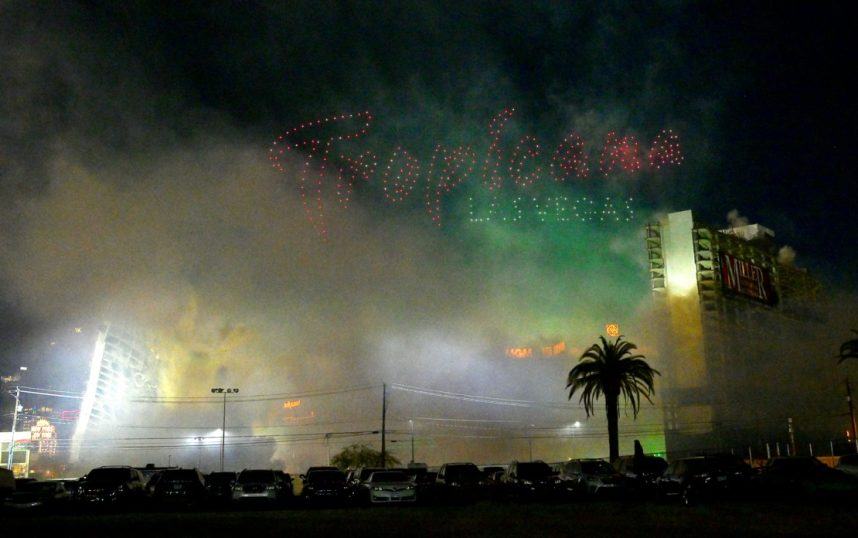
Seven minutes of fireworks and drone animations by Grucci preceded the implosion at 2:30 a.m. PT, as tourists and locals watched from the safety of nearby hotel rooms or amidst the chaos of attempting to do so on dust-enveloped nearby streets.
Co-managed by Controlled Demolition and GGG Demolition, the $1.2 million implosion took 22K lineal feet of detonating cord to pull off. Its cost was deducted from the same booty of public and private sources that will supposedly fund a baseball stadium for the Oakland A’s on nine of the site’s 35 acres.
Here’s a video…
“Bally’s is honored to have been part of this historic moment, bidding farewell to the iconic Tropicana,” Soo Kim, chair of Bally’s Corporation, which owned the Tropicana, said in a speech before its implosion. “As we celebrate its legacy, we look ahead to building a world-class entertainment resort, the future home of the Athletics, and reinforcing Las Vegas as the ultimate sports and entertainment capital.”
Both Bally’s and A’s officials, including team owner John Fisher, went to great lengths to tie the implosion to the A’s stadium in people’s minds. The “Las Vegas A’s” logo even made its public debut as a projection on at least one of the towers before they came down.
So far, however, that’s still wishful thinking, as Fisher has yet to demonstrate the $850 million in required equity financing for the stadium’s $1.5 billion construction cost. The fear of many Las Vegas insiders is that the Strip will be left with another vacant lot — much like the one that has yet to be developed after the Frontier was imploded back in 2007.
The Tropicana’s History
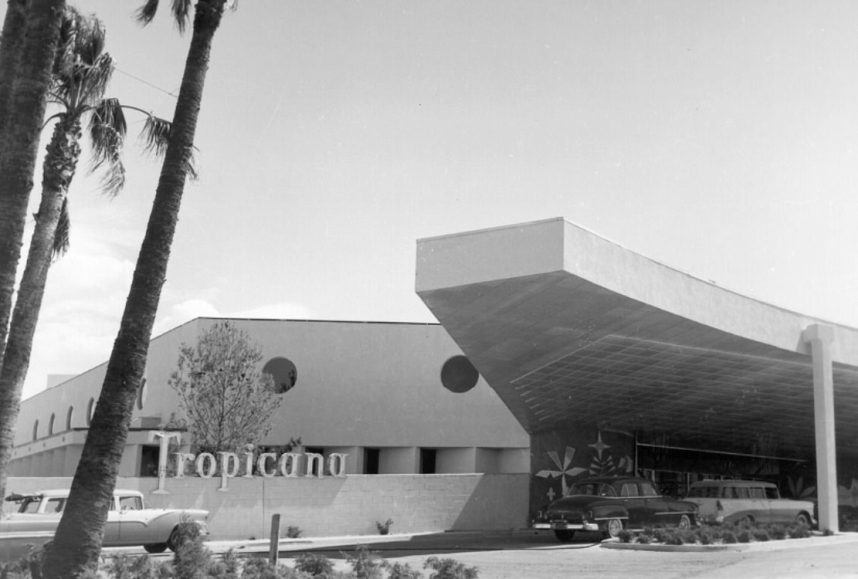
The Tropicana Las Vegas, nicknamed “Tiffany of the Strip” because of its opulence and South Beach-inspired architecture, was a cornerstone of the Las Vegas Strip since it opened in 1957 with the largest casino in Las Vegas.
Its $15 million price tag far outstripped the $8.5 million necessary to top off the Riviera two years earlier, though, at 300 rooms, it was a third of the size of the Stardust, which would open the following year.
The Tropicana was conceived by hotelier Ben Jaffe, a partner in Miami’s Fontainebleau hotel. In 1955, Jaffe purchased 40 acres on Highway 91 and Bond Road, far south of the Flamingo.
Eager to own the nicest resort in Las Vegas, but not build or run it, Jaffe leased the property to a company called Hotel Conquistador Inc., which had experience doing both.
The trouble was that its experience came via organized crime. Hotel Conquistador was owned by Phil Kastel, who ran the illegal Beverly Club gambling parlor near New Orleans under Luciano crime family boss Frank Costello. The two also ran a substantial illegal slot machine route.
The Trop’s operators had already removed Kastel’s name from the gaming license application before the Gaming Control Board’s final hearing. However, only a month after opening night, Costello survived an assassination attempt on his life in New York ordered by rival mob boss Vito Genovese. Inside one of the mobster’s coat pockets, police found an earnings promissory note from the Tropicana for $651,284 in gross winnings.
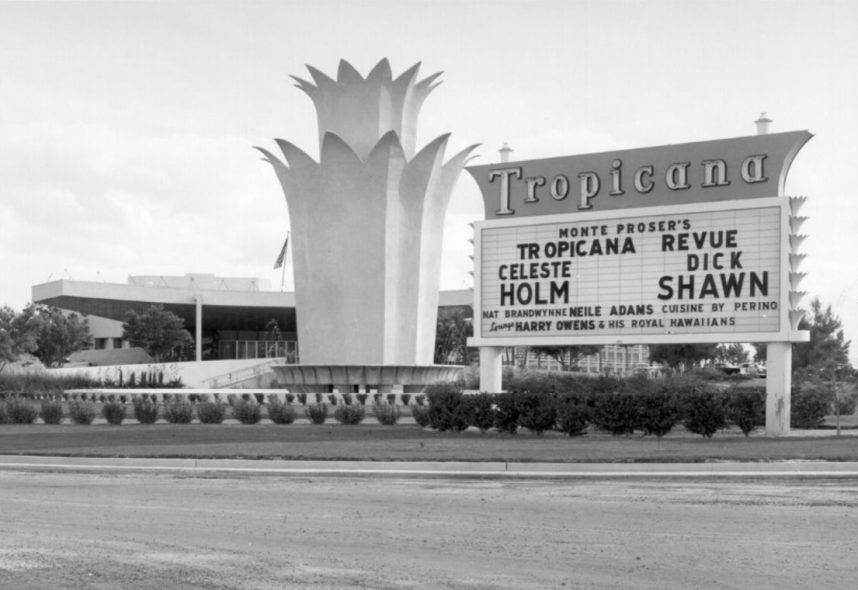
The national crime headlines didn’t hurt business, though. They may have even enhanced the Trop’s intrigue. The casino resort was a hit, with a constant stream of visiting stars, such as Sammy Davis Jr. and Elizabeth Taylor, who came to watch headliners including Jayne Mansfield and Taylor’s fiancée, Eddie Fisher.
Attempts to Keep Up
By the early ’70s, however, the Tiffany was outdone by newer and larger competitors, including Caesars Palace and the International Hotel.
Mitzi Stauffer Briggs, heir to the Stauffer Chemical fortune, bought the resort in 1975, intending to compete. She knocked down the Tropicana’s original casino and began building the 22-floor Tiffany Tower in 1977.
A year later, a skimming operation was uncovered that was operated by the Civella crime family of Kansas City. That crime ring was part of the plot inspiration for the 1995 hit film Casino, directed by Martin Scorsese and starring Robert De Niro, Joe Pesci, and Sharon Stone.
Because of her mob ties, Briggs was forced to sell the Trop to its first corporate owner, Ramada, which added a second tower in 1986. But the Trop’s reputation never recovered, enduring a revolving door of financially strapped new owners promising renovations that never materialized.
In 2015, Penn National Gaming (later Penn Entertainment) purchased the Trop for $360 million. During the pandemic, it sold the land it occupied to a spin-off company, Gaming and Leisure Properties (GLPI). In September 2022, Bally’s Corporation purchased the nonland assets of the Tropicana from GLPI for $148M and leased the land from GLPI for an annual rent of $10.5 million.
By the time of its closure in April, the Tropicana had become something of a novelty anachronism — a place most visitors regarded as necessary to visit, but only once just to say they’d seen it.
Related News Articles
Bally’s Files Implosion Permit Application to Drop Trop
Bally’s Sets Date for Tropicana Las Vegas Implosion & Party
UPDATE: Street Closure Map Shows Where to Watch Tropicana Implosion
Most Popular
Sphere Threat Prompts Dolan to End Oak View Agreement
This Pizza & Wings Costs $653 at Allegiant VIP Box in Vegas!
MGM Springfield Casino Evacuated Following Weekend Blaze
IGT Discloses Cybersecurity Incident, Financial Impact Not Clear
Most Commented
-
VEGAS MYTHS RE-BUSTED: Casinos Pump in Extra Oxygen
— November 15, 2024 — 4 Comments -
Chukchansi Gold Casino Hit with Protests Against Disenrollment
— October 21, 2024 — 3 Comments -
VEGAS MYTHS RE-BUSTED: The Final Resting Place of Whiskey Pete
— October 25, 2024 — 3 Comments
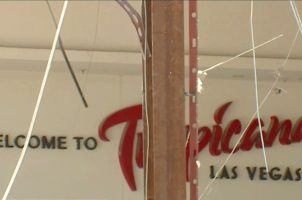
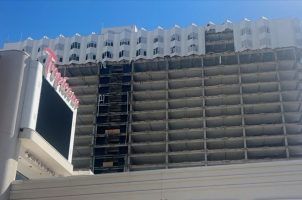
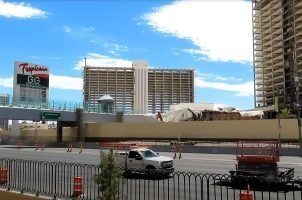
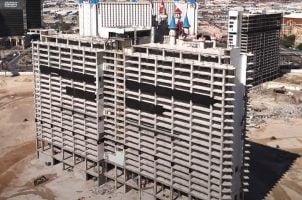










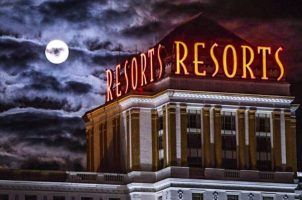

No comments yet